Across Australia, in any industry or workplace, you will meet Employers dealing with poor performance from their team members. The impacts of this can have far reaching consequences, and if left untreated, can severely damage the spirit and future performance of your team.
According to recent studies, the most common causes of poor performance are absenteeism, lateness and inconsistent standards of work related tasks and duties.
Research suggests that absenteeism costs the Australian economy more than $33 billion in wages and lost productivity every year.
By turning a blind eye or avoiding any perceived conflict by performance managing these employees will only create further negativity and drain the spirit of your team, impacting on results.
Some important steps you can take to address these issues include:
Leave no room for doubt. Poor performance can be the result of poor communication.
First of all, set very clear expectations about how people are expected to behave right from the start. Effective position descriptions, a thorough induction process and regular one on one meetings will reinforce what you want, need and expect from your team. Being a reliable member of the team is a fundamental expectation of any employment relationship. Especially make this clear from the beginning, and through positive feedback, reinforce what being reliable means in your business.
Address issues immediately.
Recognise a pattern of behaviour and engage early. If employees are repeatedly late, have poor attitudes or inconsistent standards of work, let them know. Furthermore, explain why their behaviours or choices are making you lose confidence that they will deliver when they need to.
Act swiftly and with strength.
Don’t shy away from conflict. If you have a consistently poor performing employee, be prepared to take the actions necessary to consistently apply the standards you set. Idol threats do nothing to resolve issues and in many cases reinforce the very behaviours you are working to overcome. And whilst this probably sounds counter-intuitive, have the difficult conversations early and as they arise, to create and nurture a functioning and high performing workplace for all to enjoy.
Lead by example.
And finally, it does all come down to you. Showcase what you expect from others at all times. Be consistent and reliable yourself and your team are much more likely to rise to the occasion. Another valuable tool is having an open door approach. Most of all, showing you are always available to listen, support and advise will go a long way in achieving a high performing and happy team. Offering relevant, constructive feedback is also a good way of keeping an employee “on track” with their performance. It is always better to offer more information around your key messages to your staff, rather than less.
To conclude, don’t let poor performance hinder your business. Set your expectations from day one, whether they be verbal, written in the employee’s employment documentation or via your company’s policies and procedures. Act fast if poor performance does occur, and reinforce that you will take the necessary actions required if it continues. Be mindful too, if you have more than one staff member, poor performance can have a flow on effect and be both a downright negative for others or worse, can be contagious (especially to the younger, more inexperienced staff).
So, keep the communication up, and the damage down!

